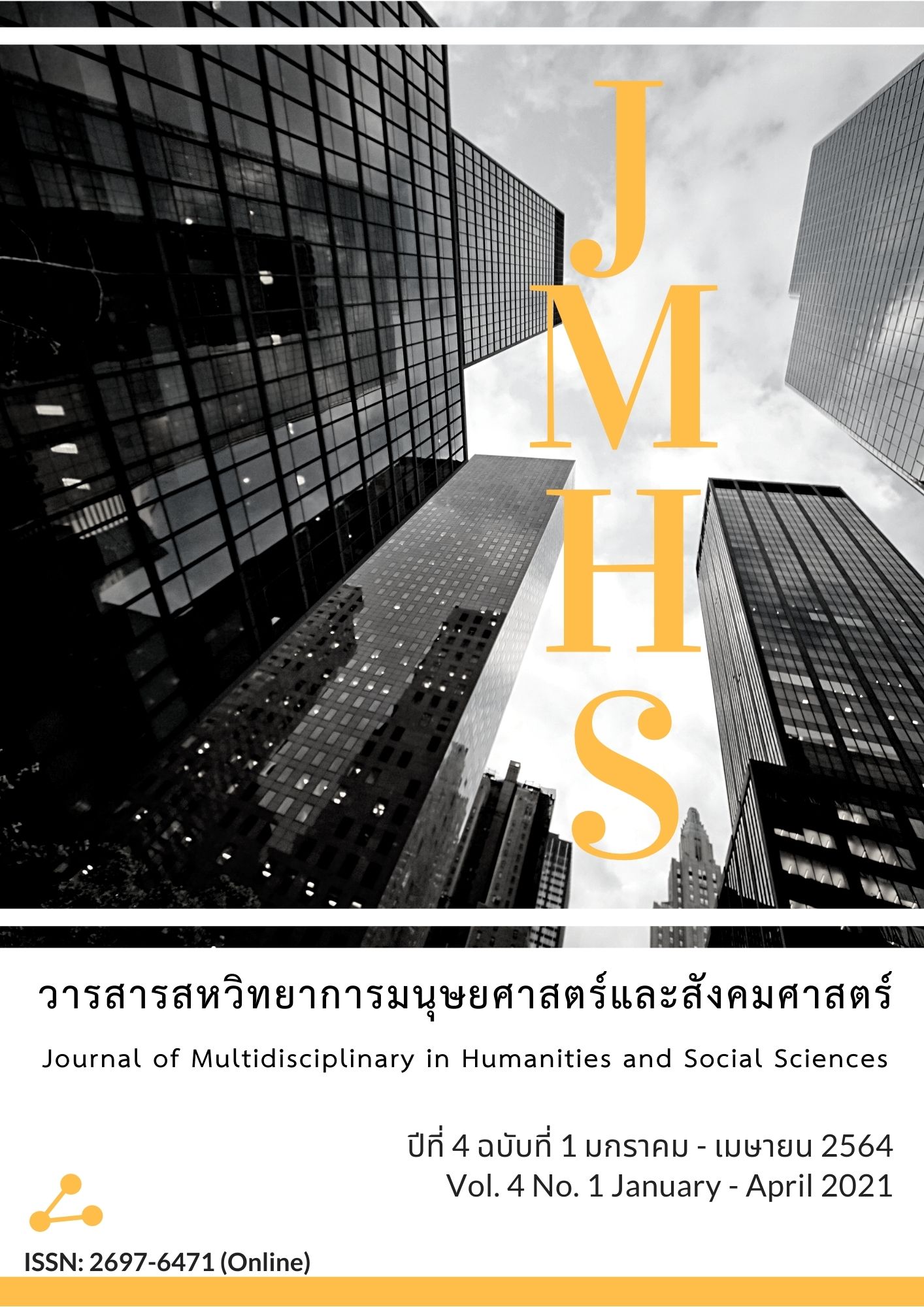The Needs for Tour Guides among Tour Operators in Five Important Tourist Provinces in the Southern Part of Thailand
Main Article Content
Abstract
The purposes of this study were to investigate 1) qualifications of graduates in tour guiding services or tourism desirable to tour operators; 2) future trends and needs for tourism personnel among tour operators. The research instruments were a questionnaire and an interview form. There are 2,567 tour companies in five tourist provinces in the Southern part of Thailand: Songkhla, Trang, Phuket, Krabi and Surat Thani and the sample size based on Yamane Taro included 360 tour companies. In-depth interviews were conducted with 10 tour companies and government officials under the Bureau of Tourism Business and Guide Registration and the Tourism Authority of Thailand, Southern Regional Offices. The study found that tour operators in all the five provinces had the same opinions. They agreed that desirable qualifications of tour guides were: knowledge of the history of tourist attractions, understanding of the way of life of people in the areas of tourist attractions, good knowledge of tourist routes, leadership skills needed for leading tours to each tourist attraction, immediate problem-solving skills, service-mind, aptitude and intelligence, patience, honesty, morality and professional ethics. The future needs for tour guides tend to be positive and increase as the government sector is promoting tourism as a national agendum. Moreover, tour guides need to have knowledge and skills of languages to serve international tourists, especially from China. Tour guides are still a desired profession, and qualified tour guides with potential are still needed. Thus, producing tour guides for the labor market requires preparation in all aspects.
Article Details
Views and opinions appearing in the Journal it is the responsibility of the author of the article, and does not constitute the view and responsibility of the editorial team.
References
กรมการท่องเที่ยว. (2559). สถิตินักท่องเที่ยวชาวต่างชาติที่เดินทางเข้าประเทศไทย ปี 2559. สืบค้นจาก http://www.tourism.go.th/ home/details/11/221/25516
กรมการท่องเที่ยว. (2561). แผนยุทธศาสตร์พัฒนาการท่องเที่ยว พ.ศ. 2561- 2564. วีไอพี ก๊อปปี้ ปริ้น.
การท่องเที่ยวแห่งประเทศไทย. (2562). ทิศทางท่องเที่ยวไทยในปี 2562. กรุงเทพฯ: การท่องเที่ยวแห่งประเทศไทย.
กระทรวงการท่องเที่ยวและกีฬา. (2558.) ยุทธศาสตร์การท่องเที่ยวไทย พ.ศ. 2558-2560. สืบค้นจาก https://www.mots.go.th/ewt_ dl_link.php?nid=7114
ตติยาพร จารุมณีรัตน์ และศิริชัย ศิลปะอาชา. (2548). การศึกษาเปรียบเทียบภาพลักษณ์ของผลิตภัณฑ์ทางการท่องเที่ยวของจังหวัดภูเก็ต พังงาและกระบี่จากมุมมองนักท่องเที่ยวและเจ้าบ้าน. รายงานการวิจัย. มหาวิทยาลัยสงขลานครินทร์. สำนักงานกองทุนสนับสนุนการวิจัย(สกว.). ภูเก็ต.
บุญเลิศ จิตตั้งวัฒนา. (2557). พฤติกรรมนักท่องเที่ยว. (พิมพ์ครั้งที่ 2). กรุงเทพฯ: เฟริ์นข้าหลวง พริ้นติ้งแอนด์พับลิชชิ่ง.
พรพิษณุ พรหมศิวพัลลภ. (2548). ความพึงพอใจของนักท่องเที่ยวต่อผลิตภัณฑ์การท่องเที่ยวของจังหวัดภูเก็ตพังงาและกระบี่. รายงานการวิจัย. มหาวิทยาลัยสงขลานครินทร์. สำนักงานกองทุนสนับสนุนการวิจัย (สกว.). ภูเก็ต
วลัยพร ริ้วตระกุลไพบูรย์. (2557). พฤติกรรมนักท่องเที่ยว. กรุงเทพฯ: สำนักพิมพ์มหาวิทยาลัยกรุงเทพ.
ศูนย์วิจัยเศรษฐกิจ ธุรกิจ และเศรษฐกิจฐานราก. (2561). อุตสาหกรรมการท่องเที่ยว สถานการณ์การท่องเที่ยวปี 2560. กรุงเทพฯ: ส่วนเศรษฐกิจรายสาขา, ศูนย์วิจัยธนาคารออมสิน.
สภาปฏิรูปแห่งชาติ. (2558). วาระที่ 1: การพัฒนาด้านการท่องเที่ยว. กรุงเทพฯ: สำนักงานเลขาธิการสภาผู้แทนราษฎร.
สุประภา สมนักพงษ์. (2560.). แนวโน้มและตลาดการท่องเที่ยว 4.0 ประเทศไทย. วารสารศิลปากร ฉบับภาษาไทย สาขามนุษยศาสตร์ สังคมศาสตร์ และศิลปะ, 10(3), 2055-2068.
สำนักงานสถิติแห่งชาติ. (2559). จำนวนนักท่องเที่ยวต่างประเทศที่เดินทางเข้ามาในประเทศไทย พ.ศ. 2545-2558. สืบค้นจาก http://service.nso.go.th/nso/web/statseries/statserirs23.html.
อมรินทร์ ตันติเมธ. (2548). เศรษฐศาสตร์ว่าด้วยพฤติกรรมการท่องเที่ยว กรณีศึกษา การตัดสินใจเลือกเดินทางมายังประเทศไทยของชาวต่างชาติ. รายงานการวิจัย. กรุงเทพฯ: มหาวิทยาลัยธุรกิจบัณฑิต.


